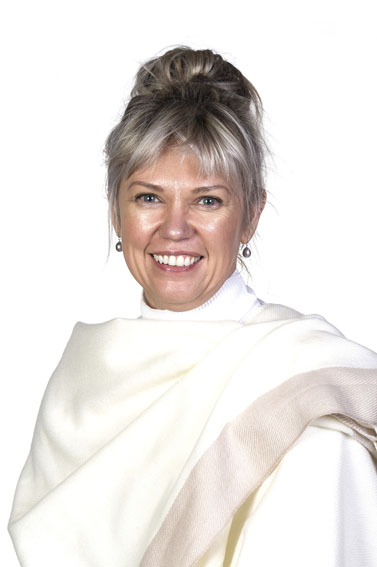Design thinking : creating desired futures
Share

A faculty member at University of Stellenbosch Business School Executive Development (USB-ED), Anne Marie le roux was in Mauritius recently in the context of the management development programmes USB-ED offers in partnership with Global Natives.
It is a fact for Anne Marie le Roux, independent business consultant and faculty member at University of Stellenbosch Business School Executive Development (USB-ED), that the world around is changing at a rapid pace. The ability to adapt and also lead that change is going to be the distinction between companies that are first in the market of the future, and those that are fast followers. USB-ED has been offering in partnership with Global Natives master classes and other management development programmes in the local market for the past three years, for which the business consultant was in Mauritius recently.
Mauritius is a trade corridor and leaders’ ability to collaborate, to partner and to co-create desired futures between different countries will become even more important for future success. In Anne Marie le Roux’s opinion, design thinking and innovation are disciplines which can be used to enable that. They will assist in designing desired futures that are customer-centred and in being first when it really matters in this fast-changing world.
Design thinking has its origins in systems thinking. “Those who understand the basics of systems thinking will find a huge benefit when going into the protocols of design thinking,” she says, adding that “the big difference between design thinking and systems thinking is that design thinking brings elements pertaining to customer and contextual empathy.” Anne Marie le Roux further develops that here, the customer is literally at the centre of how we look at enabling the future. “Design thinking really brings the heart and the mind together, the intellectual quotient (IQ) and the emotional quotient (EQ), as the definition is all about empathy, creativity and rationality.” Moreover, it really embraces all the parts that we traditionally separated through hard and soft sciences.
Questioned on how an organisation is impacted when leaders start practicing design thinking, the business consultant replies that to her, it is visible through the way the parts of a company collaborate and communicate inside and outside the company. “When you see people having an empowered system where there is a clear mandate for engagement, I know they are practicing design thinking,” she observes. There remain a lot of shortcomings that need to be addressed urgently within enterprises, according to Anne Marie le Roux, namely: focusing on fixing parts of the company rather than designing desired futures. A lot of resources go towards creating efficiencies internally. “If this is not directly impacting the customer then we have to ask if we even need that part which we are improving.”
Businesses in general have not awoken to the urgency of implementing sustainable practices either. Though Anne Marie le Roux believes there are companies that are getting parts of sustainable practices right, she deplores that “as with innovation, the trend is that mostly crisis leads us to change. My sense is that when it threatens our imminent survival is when we will create real change, rather than window dressing.”
Commenting on the situation in the Mauritian market, her first impressions are that there is a real willingness to embrace new thinking. What is more, globally, an attitude of really wanting to improve on current practices, in order to give customers the best, is evident. Challenges seem to be around changing some traditional practices of waiting for top leadership to tell or mandate actions, which leads to a culture of not really owning change. This is something which can be addressed through design thinking, Anne Marie le Roux says, “which probably explains the high demand for the programmes we are running in Mauritius: from new managers and supervisors to top executives can engage with these practices, to enable the best possible future for this beautiful island and its people.”









